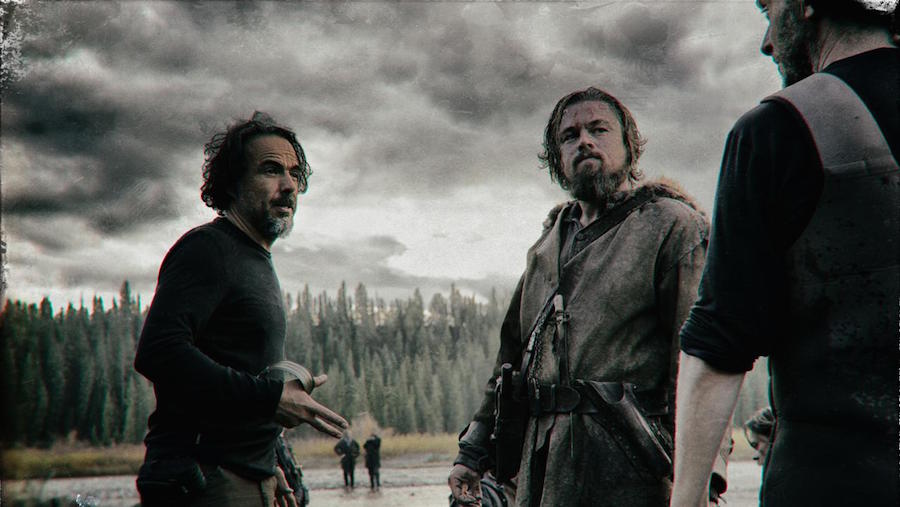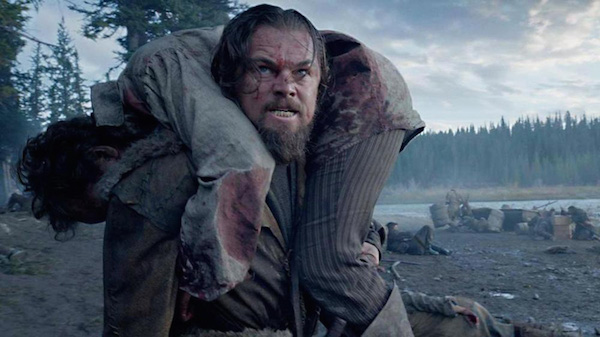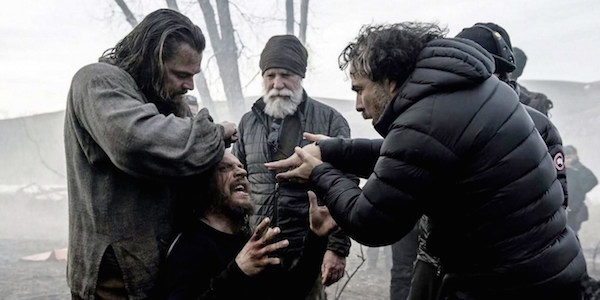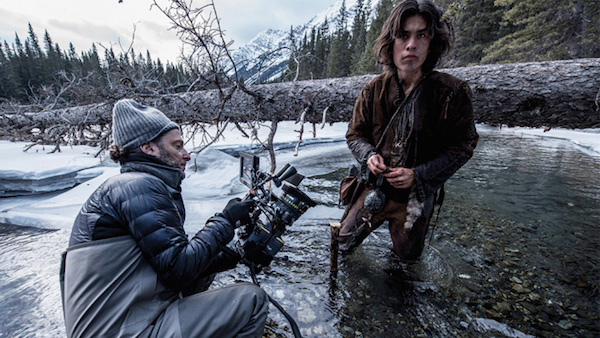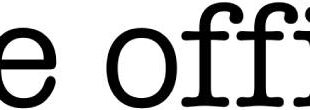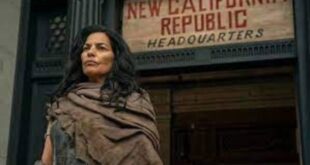The red carpets have been laid out and freshly steamed across a good stretch of Hollywood Blvd. A “who’s who” of Hollywood’s most photogenic, ambitious and legendary ready themselves to file into the Dolby Theater to see and congratulate who their peers have voted “the best of the best” for the 88th Academy Awards. In the hours leading up to the televised ceremony, the lines have been drawn by critics, cinephiles and casual moviegoers in their contrasting opinions over what film should take the coveted Picture statue home. Ranging from critical darlings Mad Max: Fury Road, Room and Spotlight to Steven Spielberg and Ridley Scott returning to their classic elements with Bridge of Spies and The Martian, respectively, to The Big Short, an important film about the 2008 financial collapse told through an idiosyncratic style that’s perfectly ingenious, the Best Picture race will either be, depending on one’s perspective, either an inspired lineup or an expected one. But as of late December, one nominee has seemingly taken audiences and guilds by storm and it isn’t John Crowley’s charming Brooklyn.
Alejandro González Iñárritu’s The Revenant. A tale of searing vengeance in the frozen Northern Plains, Iñárritu’s follow-up to last year’s Picture / Director winner Birdman or (The Unexpected Virtue of Ignorance), seems poised to make history tonight for numerous reasons, including the potential of Iñárritu being the first director in sixty-five years to win consecutive Directing Oscars, not to mention being the first filmmaker to helm consecutive Picture winners. Legendary cinematographer Emmanuel Lubezki will more than likely be taking his third Oscar in a row home after losing for Alfonso Cuarón’s Children of Men and Terrence Malick’s The New World and The Tree of Life, films and filmmakers that will be making later appearances in this op-ed, and, of course, Leonardo DiCaprio. The current frontrunner for Best Actor in a Leading Role will more than likely finally win the elusive Oscar his fanbase has been clamoring for him to have since his first nomination for What’s Eating Gilbert Grape?, back in 1993.
But is The Revenant deserving of all these acclaim and its position as the most nominated film at the Oscars? Professionally: No. Personally: Hell no! To explain why, I’ll divide my opinion into an analytical one regarding the film’s and Iñárritu’s chances followed by my own two cents on them:
Analytically, the last director to have consecutive Directing wins from the Academy was Joseph L. Mankiewicz in 1950 for All About Eve, and before him, John Ford for How Green Was My Valley in 1941. As earlier stated, if he manages to pull off a second win here, Iñárritu will be the first director in sixty-five years to have pulled consecutive wins. Also on his side are his recent Golden Globe, BAFTA and DGA wins. But neither of the first two have been the most assured way to predict who will win the Oscar. Going by this decade, the BAFTA has lined up with the Oscar win only twice – for Michel Hazanavicius for The Artist and Alfonso Cuarón for Gravity, both of whom won the DGA; with the Golden Globes, only Cuarón went on to Oscar glory. On the other hand, a handful of pundits and analytical film fans have suggested online that Iñárritu’s fortune this year hasn’t been because The Revenant is the best of the nominees, but because those awards bodies wanted to make up for not giving him the wins the previous year where he was overshadowed by Richard Linklater and Boyhood, which may be a very plausible reason. After all, most people are of the opinion an actor or filmmaker tends to win more for the wrong film because of the “due” factor behind them. As a final note on this part, if he does win, this will also mark the second year in a row he has won over critical frontrunners. Last year was Linklater; this year would be George Miller for Mad Max: Fury Road.
Another online argument supporting Iñárritu winning a second Directing award is the “Oscars So White” controversy. For the second year in a row, the Oscars have come under fire for predominantly white nominees in the acting and directing categories. And some online have suggested the Academy would gladly award the Latino director another win to demonstrate its acknowledgment of racial diversity and inclusion. Last year, when Ava DuVernay was overlooked for a Directing nomination for Selma in favor of Imitation Game director Morten Tyldum, there was reason to be “angry.” Selma was one of the most acclaimed movies of this decade while The Imitation Game was viewed as another well made but obvious Weinstein Company Oscar vehicle.
Of course, if this turns out to be the case, then the Oscars will have sacrificed a great deal of integrity by denying a generally deserving winner, regardless of skin color, in an attempt to be “inclusive” for the “Tumblr generation.”
Then there’s the matter of my own personal opinion: it just simply isn’t the best of the nominees this year. I wouldn’t go so far as to say of this decade, but even if I did, I would go back and remember a morning in the winter of 2011 when the world was completely dumbfounded by the announcement of the critically reviled Extremely Loud and Incredibly Close as a Picture nominee. What I’ve said doesn’t mean I think The Revenant is a bad movie. On a technical level, it’s quite an experience that you’d be hard pressed to find in most mainstream theaters nowadays, the performances from Leonardo DiCaprio and Tom Hardy compliment each other well and Ryuichi Sakamoto & Alva Noto’s score for the movie is very haunting. There’s certainly the ambition and scope to support its nomination, but ambition and scope can only go so far when telling a story of this magnitude.
The main narrative of the film’s awards campaign has been all about how Iñárritu opted to shoot the entire film chronologically on location in America, Canada, Mexico and Argentina using primarily natural light, aside from one small scene Emmanuel Lubezki says required electric light, and how the cast and crew suffered during the making of the film due to the extreme weather conditions and the director’s “temperamental nature,” leading to several crew members walking off the set and a day where actor Tom Hardy physically attacked Iñárritu, the image now being immortalized on t-shirts being sold online. That’s honestly a horrible narrative to push about a film in order to spark peoples’ interests or get an award. Speaking from personal experiences, all sets are hard. You have to get everything accomplished by a certain period of time, which puts the crew under emotional duress to get it right. I imagine it must have been difficult to pull off a majority of the action sequences in Mad Max: Fury Road, but you don’t hear George Miller or Charlize Theron running to Variety to give them headlines about difficulty. A movie should be effective by what it says on screen, not by what everyone off screen said happened.
And that’s without my defining opinion of The Revenant that’s been problematic to me about it since seeing the film in late December. The Revenant not only looks like Iñárritu taking a number of ideas and cues from legendary filmmakers like Terrence Malick and Andrei Tarkovsky, but arguably making the movie look like a compilation of deleted scenes taken from Malick’s The New World. Not only does Iñárritu seemingly have Lubezki recreate the look of the The New World, but he also use a number of Malick’s key crew members – along with Emmanuel Lubezki were production designer Jack Fisk, costumer Jacqueline West, all of who worked on The New World and were nominated this year for The Revenant – helping further cement the Malick-ian feel of this frozen world we spend two and a half hours in. Compare the work Lubezki, a cinematographer whose talents are undeniable and can bring an audience into any filmmaker’s world with ease, does with Iñárritu to what he’s done with Malick (not just “The New World” or “The Tree of Life”, but Malick’s recent film “Knight of Cups” showcases a number of stunning sequences featuring landmark Los Angeles and Las Vegas locations in a whole new light) or Cuarón with Children of Men, where that film took one-take sequences to a new level. With those directors, Lubezki has crafted a set style that makes it easier to identify the filmmaker whereas his work with Iñárritu feels almost identity-less. I think it’s important for a director-cinematographer collaboration to have their own distinction
Now that I’ve said my piece about Iñárritu and Malick, we’ll move on to Iñárritu and Tarkovsky. In early February, a video was posted by YouTube vlogger Misha Petrick highlighting an extensive number of key Revenant scenes that were meticulously inspired stylistically by a number of Tarkovsky’s films (the link – https://www.youtube.com/watch?v=yvkiG3lGuUQ), inspiring another debate about how original the look and style of The Revenant was. If Quentin Tarantino had done something like that, he would have been taken to task by the online communities. And he has for a number of his films in the past. Over the course of this month at his New Beverly Cinema in Los Angeles, Tarantino has organized screenings of John Carpenter’s The Thing, Sergio Corbucci’s The Great Silence, Sam Peckinpah’s “The Wild Bunch” and his own Reservoir Dogs to screen alongside his recent film The Hateful Eight as he wears his heart on his sleeve about his cinematic inspirations for his own movies. Homage is not a terrible thing in film because it allows us, the audience, to discover a wider range of films, such as what Tarantino does with films like The Hateful Eight, but in the case of Iñárritu, when a filmmaker seems to be coasting on ideas and key features from others and passing them on to an audience uneducated or interested in those filmmakers, that’s where another one of my problems lies.
And where does Leonardo DiCaprio himself fit into this? It’s easy to think highly of the performance when taking the physical extremes that were used to portray Hugh Glass into consideration. To think of what DiCaprio is able to achieve with his body against the frozen wilderness he crawls and stumbles through for a majority of the film’s 156 minute running time is incredible. But again, much like ambition, physicality doesn’t make a performance. For me, an example of a stronger leading male performance this year was Michael Fassbender as Steve Jobs. His job is arguably easier, but it still takes a lot to get into the head of such an infamous figure in modern pop culture and find the humanity in him. When DiCaprio wins, it will be less because he is the most deserving of the five nominees (which he arguably isn’t) and more for the same reasons Julianne Moore finally won her first Oscar for Still Alice last year–an overdue actor / actress in a role that’s just too good for the Academy and audience members to pass up. Moore’s performance as a linguistics professor whose life is changed when she’s diagnosed with early onset Alzheimer’s was a quietly devastating performance, but — and I mean no offense to the late director Richard Glatzer and his directing partner Wash Westmoreland — when the performance is far stronger than the film it’s a part of, for me, that’s another thing I take into account.
There’ve been major awards contenders featuring protagonists with little background and development where you’re still able to find a connection with them by the end of that, something that I just never had with Hugh Glass from the get-go. I feel for the situation he finds himself in because he’s been horribly mauled by a bear, his son is killed in front of him and he’s left for dead in a ditch, but he honestly brings the bear situation on himself by constantly provoking the enraged mother bear who’s only protecting her cubs from his gunshots, the addition of the fictional son and family is a cheat to play on peoples’ emotions (this isn’t the first film to play “fast and loose” with a real life protagonist’s history and it sure won’t be the last) and the situations Glass finds himself in to return to civilization and find his enemy borderline on comedic by the third act and detract from the heart and message Iñárritu is trying to convey. Even anonymous voting members of the Academy aren’t taking “the bait,” with opinions posted on the Hollywood Reporter ranging from exhaustion listening to the cast and crew talk about the extreme shooting conditions to the unbelievability of Glass’s journey.
So far this decade, we’ve seen the Academy declare stuttering kings, shamed film stars and wrongfully enslaved free men the stories that have added to the pantheon of incredible cinema. This year will possibly see the potential of one lone man surviving an apocalyptic wasteland in the hunt for his humanity and, unfortunately, it won’t be the right Tom Hardy movie. Personally, I think if they want to give Iñárritu wins for this, the Academy would do better to build a time machine, return to 2005, and give infamous Picture winner “Crash”’s nominations for Picture and director Paul Haggis to Terrence Malick. But regardless of whether The Revenant is a repeat of Birdman’s awards success for Iñárritu this year or, by some shock, goes the route of American Hustle, i.e. the big event movie that enters the theater guns blazing and leaves with nothing to its credit, it is a film that will have a long life amongst filmgoers and critics over its potentially controversial place in the annals of American cinema.
 Age of The Nerd
Age of The Nerd
